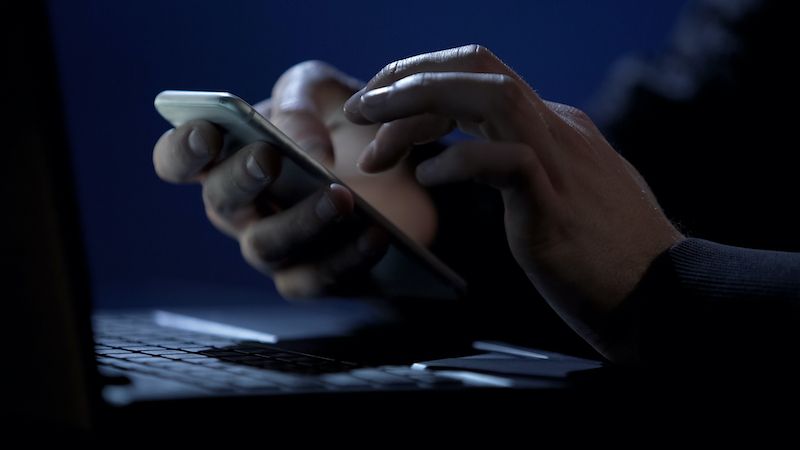


Mobile networks in the Channel Islands have been used to undertake surveillance by private intelligence companies.
A joint investigation was undertaken by the Guardian and the Bureau of Investigative Journalists.
Guernsey and Jersey's mobile telcom infrastructure has been highlighted as being ‘particularly vulnerable’ to exploitation by spy companies.

Pictured: Relying on older 2G and 3G technology can lead to hacking and exploitation.
How it works: Independent intelligence agencies can rent access points – known as global titles – to local telecom networks.
Through this, they can access an old messaging system known as SS7, and send out certain signals to phones across the globe to track people’s locations – a feature that is normally used by operators to connect mobile users to one another and figure out if a customer is roaming.
These can usually be whittled out by stringent security protocols covered in the UK's 'Telecoms Security Bill', but since Guernsey doesn’t sit within that bill, and since +44 numbers are generally trusted and can appear as if they’re emanating from the UK, some firewalls can be breached.
The Guardian said Israeli private intelligence company Rayzone Group appears to have used an intermediary to lease an access point via Sure Guernsey gain access to the global telecommunications network.
Sure were contacted during the investigation and have now released a statement:
'Sure would like to reassure our Bailiwick customers that data privacy and cybersecurity are of paramount importance. On a strategic level Sure works closely with the UK National Cyber Security Centre and the States of Guernsey. In addition, Sure’s Chief Security Officer sits on a UK industry working group involving the UK operators and the National Cyber Security Centre (NCSC) and is notified and immediately acts on any potential issues.
Global titles are a niche type of telecommunications service Sure supplies to a small number of specialist providers of legitimate services such as anti-fraud detection for the retail banking sector, telecommunications for the maritime sector and SMS two-factor authentication services.
As with many aspects of digital services, global titles have the potential to be misused and this is why we take a number of actions to mitigate this risk.
Sure does not lease access to global titles directly or knowingly to organisations for the purposes of locating and tracking individuals or for intercepting communications content.
Sure works with global telecommunications companies, including all UK operators, to monitor signalling traffic (the type of traffic used by global titles). Any evidence or complaint, provided by authorities, such as the NCSC or operators, results in the service in question being immediately ceased and subsequently permanently terminated if malicious or inappropriate traffic is discovered upon investigation.'

Pictured: "Guernsey takes extremely seriously its role as a good neighbour to the UK" - statement from the States of Guernsey.
Guernsey is currently in the process of aligning with the UK’s security bill, with The Telecoms Security Framework now in development. The States of Guernsey released to the Express the following statement:
“The States of Guernsey, works very closely with the National Cyber Security Centre (NCSC) and the UK Department for Digital, Culture, Media and Sport (DCMS). NCSC and DCMS have dedicated officers for the three Crown Dependencies and communicate regularly with them on a range of security matters, including telecoms security.”
"Guernsey takes extremely seriously its role as a good neighbour to the UK and other jurisdictions and its role internationally in ensuring telecoms security meets the highest standards. As part of the British family, the Guernsey and UK governments are working together to make sure that the telecoms security policies and regulation are closely aligned."
"Like the UK, the Crown Dependencies each have Telecom Security Policies. Guernsey’s can be found here. Guernsey is also developing Telecoms Security Requirements (TSRs) which will align with the UK’s approach and timeframes and will be legislated for, and regulated, in a similar manner."
Both islands’ regulatory authorities for telecoms – the recently-split JCRA and GCRA – told Express that they were not conducting any investigation into the allegations at this time.
Comments
Comments on this story express the views of the commentator only, not Bailiwick Publishing. We are unable to guarantee the accuracy of any of those comments.